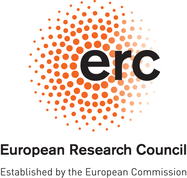|
We are an interdisciplinary group interested in super-resolution live-cell imaging, adaptation to stress, and drug resistance biology in pathogens
A bit about our research The focus of our group is on the mechanisms of cellular adaptations to stress and aging, in particular those involving dynamic sweeping rearrangements in cellular architecture . Adaptation enables certain pathogenic microorganisms to withstand severe stress and acquire drug resistance. Cancer progression is also dependent on cellular remodeling. The overall goal of our lab is to develop a full mechanistic understanding of adaptation in fungi and mammalian cells. To this end we apply a diverse set of tools from biochemistry, to yeast genetics, mammalian cell biology, drug screens, and simple model organisms. |
Neuroscience Research Group
Microbiology Research Group Molecular and Cellular Research Group Institute for Life Sciences School of Biological Sciences Life Sciences Building (building 85), Highfield Campus, Southampton SO17 1BJ University of Southampton |


